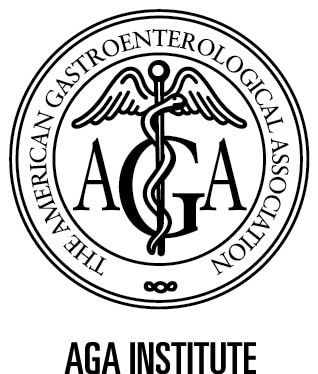Live Stream: Fact or Fiction? Sorting Out Common Misconceptions About Ulcerative Colitis to Improve Patient Care
CMEO Medical Meeting
Symposium Date/Time: Thursday, January 19, 2018
9:00 AM – 10:30 AM ET
6:00 AM – 7:30 AM PT
This activity offers CE credit for:
- Physicians (CME)
- Nurses (CNE)
- Pharmacists (ACPE)
- ABIM (ABIM)
- Other
All other clinicians will receive a Certificate of Attendance stating this activity was certified for AMA PRA Category 1 Credit™
Credit Expiration Date: Saturday, January 19, 2019
Faculty
 |
David T. Rubin, MD, FACG, AGAF, FACP, FASGE (Moderator) Joseph B. Kirsner Professor of Medicine Section Chief, Gastroenterology, Hepatology and Nutrition Co-Director, Digestive Diseases Center University of Chicago Medicine Chicago, IL |
 |
William J. Sandborn, MD Professor of Medicine and Adjunct Professor of Surgery Chief, Division of Gastroenterology Vice Chair for Clinical Operations, Department of Medicine Director, UCSD IBD Center University of California San Diego and UC San Diego Health System La Jolla, CA |
Statement of Need
It is well established that ulcerative colitis (UC) is a heterogeneous disease with symptoms that wane over time. The disease course for 50% of individuals is persistently active over time with worsening and relapsing symptoms and is associated with long-term anemia, colonic dysfunction, and increased risk for colorectal cancer. Evidence indicates that treating the inflammation to achieve improvement in endoscopic appearance of the mucosa early in the course of UC is effective for current flares, but also reduces the risk of future relapse.
Yet, compared to Crohn’s disease (CD), UC is not always given the same treatment urgency and is considered by many gastroenterologists to be easier to diagnose and treat than CD, with better outcomes, and is a disease in which colectomy is a more acceptable outcome despite the inherent risks associated with surgery. Despite misconceptions about the “easier” inflammatory bowel disease, individuals with UC experience significant impact on their quality of life. 73% of patients report that their UC has interfered with their leisure activities, 67% report a that UC has taken a negative toll on them in the workplace, and 25% have had to alter their work to accommodate their disease.1,2
It’s time to separate fact from fiction. We invite you to join this Crohn’s and Colitis CongressTMsymposium and live webstream as faculty use gaming and case studies to debunk many misconceptions about UC and provide evidence and best practices to pave the way for better patient outcomes.
References:
1. Dart RJ, Samaan MA, Powell N, Irving PM. Vedolizumab: toward a personalized therapy paradigm for people with ulcerative colitis. Clin Exp Gastroenterol. 2017;10:57-66.
2. Ghosh S, Mitchell R. Impact of inflammatory bowel disease on quality of life: results of the European Federation of Crohn’s and Ulcerative Colitis Associations (EFCCA) patient survey. J Crohns Colitis. 2007;1(1):10-20.
Learning Objectives
At the end of this CE activity, participants should be able to:
- Recognize the complex nature of UC that requires risk stratification to drive treatment decisions.
- Integrate a steroid-sparing management strategy into treatment planning to minimize long-term steroid dependence and associated side effects.
- In patients with moderate to severe UC, initiate early, top-down treatment aligned with the AGA UC Clinical Care Pathway to achieve remission and improvement in endoscopic appearance of the mucosa.
The following learning objectives pertain only to those requesting CNE or CPE credit:
- Recognize the complex nature of UC that requires risk stratification to drive treatment decisions.
- Describe a steroid-sparing management strategy for treatment plans that will minimize long-term steroid dependence and associated side effects.
- For patients with moderate to severe UC, explain how to initiate early, top-down treatment aligned with the AGA UC Clinical Care Pathway to achieve remission and improvement in endoscopic appearance of the mucosa.
Financial Support
Supported by an educational grant from Takeda Pharmaceuticals USA
Target Audience
Gastroenterologists, physician assistants, nurse practitioners, nurses, and pharmacists who treat patients with Ulcerative Colitis
Credit Information
CME Credit (Physicians):
Provided by the American Gastroenterological Association and CME Outfitters.
 The American Gastroenterological Association (AGA) Institute is accredited by the Accreditation Council for Continuing Medical Education (ACCME) to provide continuing medical education for physicians.
The American Gastroenterological Association (AGA) Institute is accredited by the Accreditation Council for Continuing Medical Education (ACCME) to provide continuing medical education for physicians.
The AGA Institute designates this live activity for a maximum of 1.5 AMA PRA Category 1 Credits™. Physicians should claim only the credit commensurate with the extent of their participation in the activity.
CNE Credit (Nurses):
Provider approved by the California Board of Registered Nursing, Provider Number CEP 15510, for 1.5 contact hours
Note to Nurse Practitioners and Clinical Nurse Specialists: the content of this activity pertains to pharmacology. Earn up to 1.5 contact hours of pharmacotherapeutic contact hours.
Note to Nurse Practitioners: Nurse practitioners can apply for AMA PRA Category 1 CreditTMthrough the American Academy of Nurse Practitioners (AANP). AANP will accept AMA PRA Category 1 CreditTM from organizations accredited by the Accreditation Council for Continuing Medical Education. Nurse practitioners can also apply for credit through their state boards.
CPE Credit (Pharmacists):
![]() CME Outfitters, LLC, is accredited by the Accreditation Council for Pharmacy Education as a provider of continuing pharmacy education. 1.5 contact hours (0.15 CEUs) Universal Activity Number:
CME Outfitters, LLC, is accredited by the Accreditation Council for Pharmacy Education as a provider of continuing pharmacy education. 1.5 contact hours (0.15 CEUs) Universal Activity Number:
Enduring: 0376-0000-18-001-H01-P
Live: 0376-0000-18-001-L01-P
Type: knowledge-based
ABIM/MOC Credit:
Successful completion of this CME activity, which includes participation in the evaluation component, enables the participant to earn up to 1.5 MOC points in the American Board of Internal Medicine’s (ABIM) Maintenance of Certification (MOC) program. Participants will earn MOC points equivalent to the amount of CME credits claimed for the activity. It is the CME activity provider’s responsibility to submit participant completion information to ACCME for the purpose of granting ABIM MOC credit.
Learning Formats
Live activity
Enduring material
Note to Physician Assistants: AAPA accepts certificates of participation for educational activities certified for AMA PRA Category 1 CreditTM from organizations accredited by the Accreditation Council for Continuing Medical Education.
Post-tests, credit request forms, and activity evaluations must be completed online at www.cmeoutfitters.com/TST25321 (requires free account activation), and participants can print their certificate or statement of credit immediately (75% pass rate required). This website supports all browsers except Internet Explorer for Mac. For complete technical requirements and privacy policy, visit www.neurosciencecme.com/technical.asp.
Disclosure Declaration
In accordance with the ACCME’s Standards for Commercial Support of Continuing Medical Education, all faculty and planning partners must disclose any financial relationship(s) or other relationship(s) held within the past 12 months. The AGA Institute implements a mechanism to identify and resolve all conflicts of interest prior to delivering the educational activity to learners.
Dr Rubin reports that he receives grant support from AbbVie Inc.; Genetech, Inc./Roche; Janssen Pharmaceuticals, Inc.; Prometheus Laboratories Inc.; Shire; Takeda Pharmaceuticals U.S.A., Inc.; and UCB, Inc. He serves as a consultant for AbbVie Inc.; AbGenomics; Allergan; Amgen Inc.; Celgene Corporation; Forward Pharma; Genentech, Inc./Roche; Janssen Pharmaceuticals, Inc.; Merck & Co., Inc.; Miraca Life Sciences, Inc.; Napo Pharmaceuticals, Inc.; Pfizer Inc.; Salix Pharmaceuticals; Samsung Bioepis; Sandoz; Shire; Takeda Pharmaceuticals U.S.A., Inc.; and TARGET PharmaSolutions, Inc.
Dr. Sandborn reports that he receives grant support from AbbVie Inc.; Amgen Inc.; Celgene Corporation; Eli Lilly and Company; Genentech, Inc.; Gilead; Janssen Pharmaceuticals, Inc.; and Pfizer Inc. He is a consultant for AbbVie Inc.; Allergan; Amgen Inc.; Celgene Corporation; Eli Lilly and Company; Genentech, Inc.; Gilead; Janssen Pharmaceuticals, Inc.; Pfizer Inc.; Robarts Clinical Trials (owned by Western University, London, Ontario, CA); and UCB, Inc.
Kashemi Rorie, PhD (planning committee) has no disclosures to report.
Jan Perez (planning committee) has no disclosures to report.
Disclosures were obtained from the CME Outfitters, LLC staff: No disclosures to report.
Disclosures were obtained from the AGA Institute CME subcommittee: No disclosures to report. The members of the AGA Institute CME subcommittee are:
| Sarah N. Flier, MD (chair) Meira Abramowitz Amar Deshpande Thomas Kerr Robert Lowe Peter Mannon |
Kamron Pourmand Danielle K. Turgeon Sandra M. Amos Maura H. Davis Amy Woodward |
Faculty of this CE activity may include discussions of products or devices that are not currently labeled for use by the FDA. The faculty have been informed of their responsibility to disclose to the audience if they will be discussing off-label or investigational uses (any uses not approved by the FDA) of products or devices.
